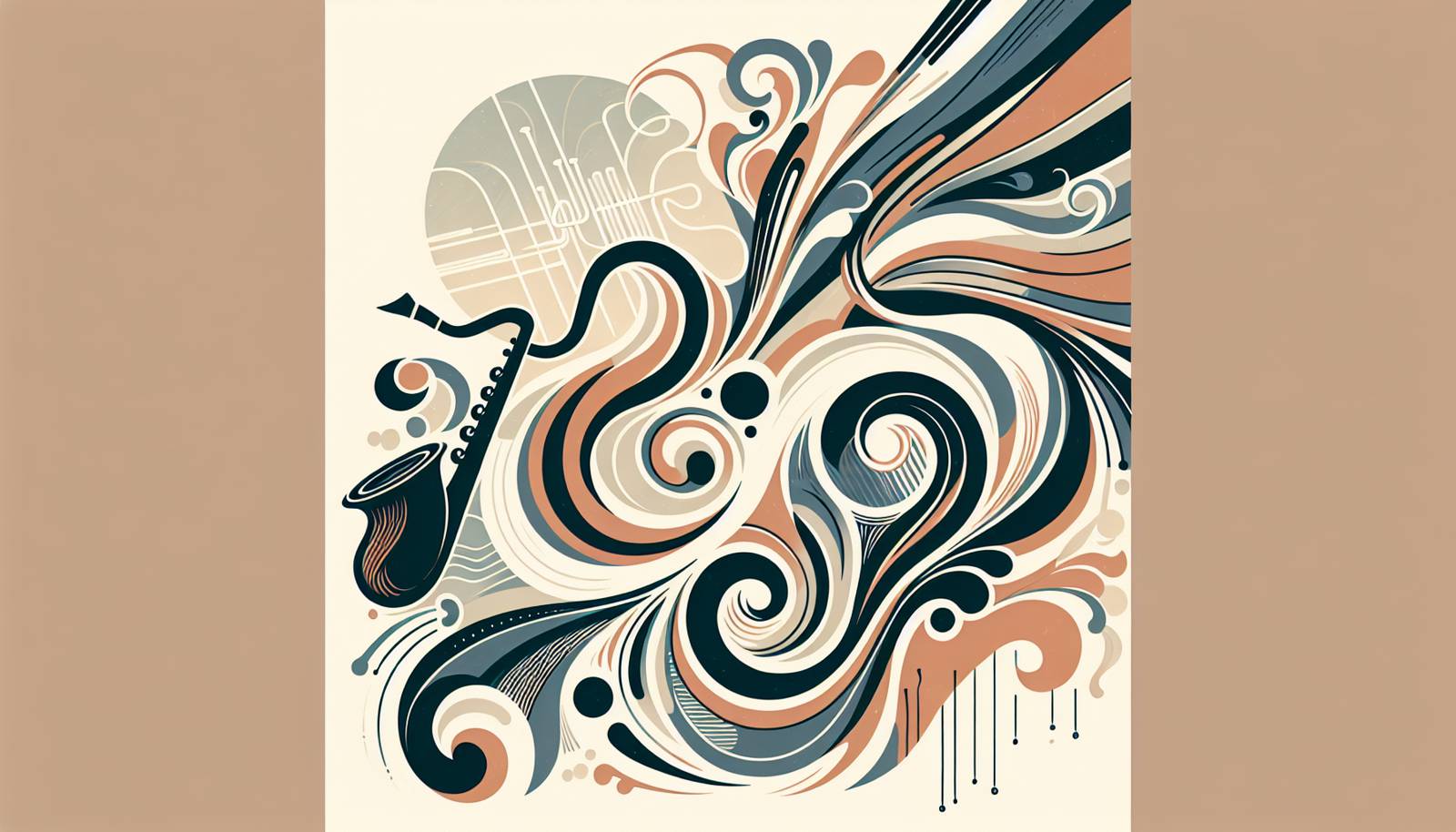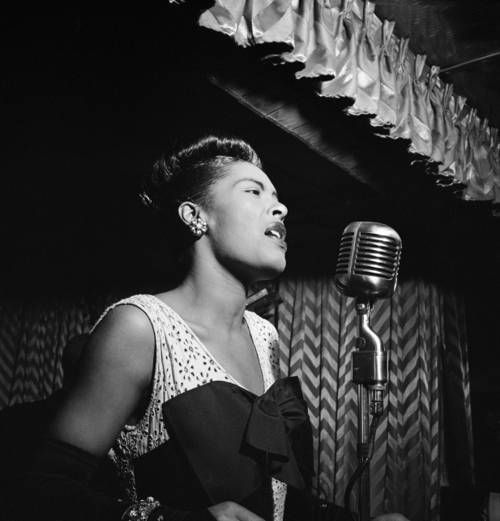
FAQ About Billie Holiday

Who was Billie Holiday?
Billie Holiday, also known as "Lady Day," was an American jazz and swing singer born on April 7, 1915. She is widely regarded for her deeply expressive voice and emotive delivery, which had a profound influence on jazz and pop music. Her career spanned the 1930s to the 1950s during which she worked with legendary musicians like Count Basie and Lester Young.

What are some of Billie Holiday's most famous songs?
Some of Billie Holiday's most famous songs include "Strange Fruit," a poignant commentary on racial injustice, "God Bless the Child," "Lover Man," and "Summertime." These tracks are celebrated for their emotional depth and Holiday's unique vocal interpretation.

Why is Billie Holiday referred to as 'Lady Day'?
The nickname "Lady Day" was given to Billie Holiday by her friend and musical partner, saxophonist Lester Young. In return, Holiday referred to Young as "Pres" or "Prez," short for President. Their mutual nicknames highlighted their close friendship and musical camaraderie.

How did Billie Holiday start her singing career?
Billie Holiday began her singing career in her late teens after moving to Harlem, New York. She started by performing in nightclubs before being discovered by producer John Hammond, who helped launch her recording career. Her early recordings with Benny Goodman in 1933 marked the beginning of her rise to fame.

What is the significance of Billie Holiday's song 'Strange Fruit'?
"Strange Fruit," recorded in 1939, is one of Billie Holiday's most significant and controversial songs. It addresses the horrors of lynching in America, painting a vivid picture of racial violence. The song is considered a pioneering protest anthem and is credited with shifting Holiday's career towards more socially conscious themes.

Did Billie Holiday write her own music?
While Billie Holiday was primarily known as a vocalist, she did co-write some songs, including "God Bless the Child" and "Don't Explain." However, many of the songs she performed were written by others and chosen for her because they matched her unique vocal style and emotional depth.

What challenges did Billie Holiday face during her career?
Billie Holiday faced numerous challenges including racism, sexism, and substance abuse. Despite her talent, she often encountered discrimination, such as being forced to use side entrances and elevators in venues where she performed. Her struggles with drug addiction also led to legal troubles and affected her health and career longevity.

How did Billie Holiday impact jazz music?
Billie Holiday's impact on jazz music is profound. Her innovative phrasing, emotional depth, and unique ability to convey the emotional essence of a song have influenced countless artists across various genres. She broke barriers by addressing social issues through her music, paving the way for future jazz and pop singers to tackle more personal and political themes.

What was Billie Holiday's relationship with Lester Young?
Billie Holiday and Lester Young shared a deep personal and professional relationship. They worked together closely, and Young greatly admired Holiday's vocal skills, dubbing her "Lady Day." Their collaborations produced some of the most memorable recordings of the jazz era, and they remained close friends throughout their careers.

When did Billie Holiday pass away and what were the circumstances?
Billie Holiday passed away on July 17, 1959, due to complications from cirrhosis of the liver, a condition exacerbated by her long-term alcohol and drug use. Despite her struggles with addiction, she continued to perform until the end of her life, leaving behind a legacy of powerful music that continues to resonate today.

What awards or recognitions did Billie Holiday receive?
Billie Holiday received several posthumous accolades that underscore her impact on music. In 1973, she was inducted into the Grammy Hall of Fame, and in 2000, she was inducted into the Rock and Roll Hall of Fame. These honors recognize her lasting influence on both jazz and popular music.

How did Billie Holiday influence civil rights through her music?
Billie Holiday's performance of "Strange Fruit" played a significant role in raising awareness about the horrors of racial violence in America. By choosing to perform this powerful song, Holiday became one of the first artists to use music as a platform to protest social injustices, thus influencing the civil rights movement and inspiring future generations of musicians to address political issues through their work.

Was Billie Holiday involved in films or acting?
Billie Holiday appeared in a few films, most notably "New Orleans" (1947), where she played a blues singer. Although she was primarily focused on her music career, her role in "New Orleans" highlighted her presence in the entertainment industry beyond singing. Her life story has also been depicted in films, such as "Lady Sings the Blues" starring Diana Ross.

What unique qualities did Billie Holiday bring to her performances?
Billie Holiday's performances were renowned for their emotional authenticity, unique vocal phrasing, and ability to convey deep emotional truths. Her technique involved bending notes and utilizing a laid-back rhythm that made every song distinctly her own. Holiday's ability to imbue her performances with personal emotion and storytelling set her apart from other singers of her time.

In what way was Billie Holiday's life depicted in literature?
Billie Holiday's life was depicted in her autobiography "Lady Sings the Blues," which she co-authored with William Dufty. The book provides a candid look into her personal struggles and career, offering insights into the challenges she faced and the triumphs she achieved. Additionally, numerous biographies and academic works have explored her influence and legacy in greater detail.

What were Billie Holiday's formative influences in music?
Billie Holiday was influenced by a wide range of artists, including performers like Louis Armstrong and Bessie Smith. Their work shaped her understanding of jazz and the emotive power of music, contributing to the development of her own unique style and vocal delivery that would captivate audiences.

How is Billie Holiday remembered today?
Today, Billie Holiday is remembered as a trailblazing musical icon whose work transcended jazz to influence all of American music. Her recordings continue to be celebrated for their emotional depth and technical brilliance, and her life story inspires countless individuals interested in the history of music and its cultural impact. Memorials, documentaries, and tributes keep her legacy alive, sustaining her status as an enduring symbol of resilience and artistic integrity.

What were some of the collaborations Billie Holiday was known for?
Billie Holiday collaborated with many prominent jazz musicians throughout her career. She worked with big bands and small groups, including Count Basie's orchestra and Artie Shaw's band. Her collaborations with saxophonist Lester Young are particularly celebrated, as their artistic synergy produced some of the era's most memorable recordings.

Did Billie Holiday have any nicknames?
Apart from "Lady Day," which was given to her by Lester Young, Billie Holiday was also occasionally referred to simply as "Billie," a name she adopted from actress Billie Dove. These nicknames reflect her unique identity and persona within the jazz community.

What impact did Billie Holiday have on future generations of musicians?
Billie Holiday's impact on future generations is vast and enduring. Her emotional honesty and technical innovations, such as her phrasing and delivery, influenced countless singers and musicians across genres. Artists such as Nina Simone, Diana Ross, and Amy Winehouse have cited Holiday as an influence. Her ability to transcend the music of her time continues to inspire contemporary artists to explore emotional depth and social themes in their work.
